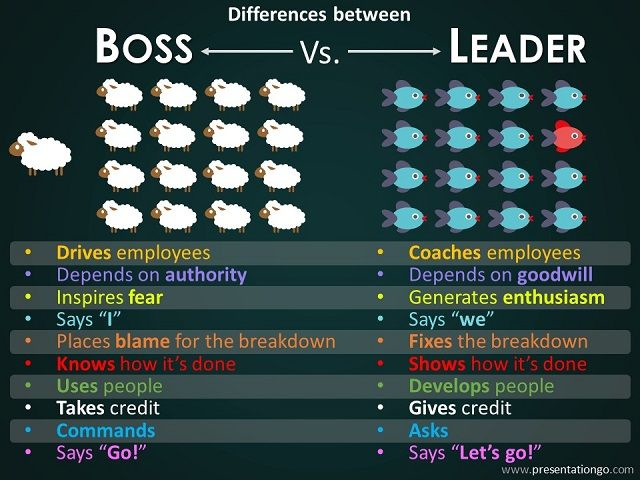Engineering Management
Process
- The interface between engineering dept. and business/customer-support dept. should be clear, esp. on long-standing, important issues
- It should be a well-defined metric
- This metric is selected based on engineering expertise and business feedback
- We will add more / revise metrics based on business side feedback iteratively
- To solve any non-feature problem, directly relating to customer experience and developer productivity
- We should avoid writing new code, instead trying to innovate our process first 1. Improve customer support process => better experience without writing new code 2. Improve SRE process => better developer productivity without writing new code
- We should not be perfectionist, instead, be a ruthless, data-driven practitioner
- Meetings
- The goal of meeting is to reach consensus
- It is hard to reach any real solution in a general meeting. However, spark might come in an informal one
- Standup & fast
Motivation
- Make them feel productive and validated for his/her work
- Smooth the experience of development
- Effective goal setting, don’t change requirements or ops-ing too much
- Let him/her do the design and guide them through the validation process
- Make them feel growth and intellectual challenge
- Encourage innovation and experiment
- Establish our unique culture, spirit and workflow, a sense of team belonging
- Manage-up and push-back: Tractable and Transparent
- The engineers set goals for themselves based on business/ops requirements. However, they should be transparent about their progress and communicates actively
- The engineers have the rights and are expected to push back when some goals can be met within expected date. However, they should state their reason and discuss a more proper new date with manager. The manager is expected to help engineer to decide on the date more reasonably
[1] https://www.cleverism.com/google-way-motivating-employees/ [2] https://www.inc.com/ilya-pozin/14-highly-effective-ways-to-motivate-employees.html [3] https://stackify.com/measuring-software-development-productivity/
Leadership
- Do your co-workers love to work with you?
- Do they want to discuss problems with you?
- Do they trust on critical things?
- Do they respect your ideas?
- Are they willing to work under your leadership?
Relationships
- How to manage the relationship with CTO?
- We need frequent communication, even if the communication might be one-sided or misunderstood. This also makes me learn and grow.
- stress that you made X decision based on Y facts. If you am not authorized to do so, then you will stop crossing the line. If you am wrong, you will be responsible for it and trying to save it.
- How to manage the relationship with CEO?
- Express your technical perspective clearly & firmly
- Tell the story backwards: I believe. We will. You can.
- Manage expectations well
- How to mange the relationship with other colleagues?
- Build the culture of sharing and mentorship
- Speak out openly but non-hurting
- Connect with them personally. Learn from them.
Developers Types
- Frontier
- Add new code based on existing framework
- Communicate with business/product end
- Use our internal productivity tools
- Write unit tests and conduct smoke test
- Understand our product logic
- Meet immediate & strict deadline
- Core
- Architecture — Ability to understand the logics of our framework and design/develop it
- Performance — Ability to conduct system level performance analysis
- DevOps — Ability to create and manage the internal productivity tools
- Site Reliability — Ability to release code, being on-call, build monitoring and alarming system, plan capacity, and manage instances
- Security — Ability to address all security issues in our system
- Data Analyst — Ability to manage database, including managing permissions, writing data analyzer scripts, turning performance of database and data related code, ability to create meaningful report from our raw data
- Super Coder — Meet complex, long-term implementations goals with quality
- Domain Expert — expert in Data Science? Cryptography?
- Leadership
- Process Optimization
- Developer Productivity
- Interface & Communication
- Priority & Goal Setting
These two roles are not strictly assigned to each one. People might do both, might rotate. Our overall top-level system should permit such rotations without significant security risk exposure.
Misc
- The necessity for communication and collaboration will naturally create the need for mechanism, common knowledge, and documentation
https://zhuanlan.zhihu.com/p/19887395 这个文章很棒
- 以前记住的是任务,现在记住的是目标;
- 以前没做好是你的错,现在团队的任何人没做好,都是你的错;
- 以前可能只需要记住上司的名字,现在需要记住所有人的名字;
- 以前想办法让自己比身边的人更优秀,现在要想办法让身边的人比自己更优秀;
- 以前总想做有兴趣有挑战的事情,现在要准备好做最无聊最艰难的事情;
其实 Leader 并不是想象中那样英俊潇洒,光芒四射,管理工作更不是想象中那样唯我独尊,轻松愉快。
https://www.slideshare.net/jeelchristine/theory-of-work-adjustment-45075959
- 成就:你如何看待工作成就感
- 舒适:你是否看中舒适和稳定的工作
- 地位:你是否追求晋升成为管理者
- 利他主义:你是否想做一份帮助他人的工作
- 安全感:你是否希望公司更透明更一视同仁
- 自主权:你是否希望获得更多自由发挥的空间
专家 vs 高管

人呐,还是要夹起尾巴,如履薄冰啊。
都比你私自做主强,不请示,就算你做的对下场也不一定好。 高调做事,低调做人 鼓励下属主动和你提加薪。
随着下属个人能力的提升,主动为其加薪。
不分场合批评下属
把责任推给下属
做好每天的计划。
浮浅工作时间控制在 10%
人总是这样,跑着想走着,走着想站着,站着想坐着,坐着想躺着,这是本性。 只有平时严格要求了,招之能来,来之能战,战之能胜,你才是真的对所有人负责。所以我平时对 Leader 的基本要求,就是别做老好人,要保持战斗力,解决问题。
很多技术牛人才转管理岗后最大的问题就是会陷入“被动管理” 的误区,有事情了,处理一下,问题发生了,解决一下。对下不能规划设定目标,碰到矛盾只知道和稀泥,有矛盾不决断期待大事化小小事化了,该处理该决断的时候拿不定注意(比如开掉一个有问题的人);对上不能主动为大家争取利益,不能把大家工作量化让高层知道并认可大家的工作成绩,那是很失败的。
做技术就得这样静下心来把所有的问题加载到你脑袋的 cache 中,然后才能通盘考虑全面规划,两耳不闻传外事一心只读圣贤书,你才能进入创作的境界,并思如泉涌。
https://www.zhihu.com/people/ningnanshan/activities How to be an opinion leader?
https://blog.dbsmasher.com/2019/01/28/on-being-a-principal-engineer.html
https://www.robinly.info/blog/leadership-article?utm_campaign=leadearship&utm_medium=ad&utm_source=linkedin The WeChat favor
https://nickmchardy.com/2019/02/on-being-an-engineering-manager.html